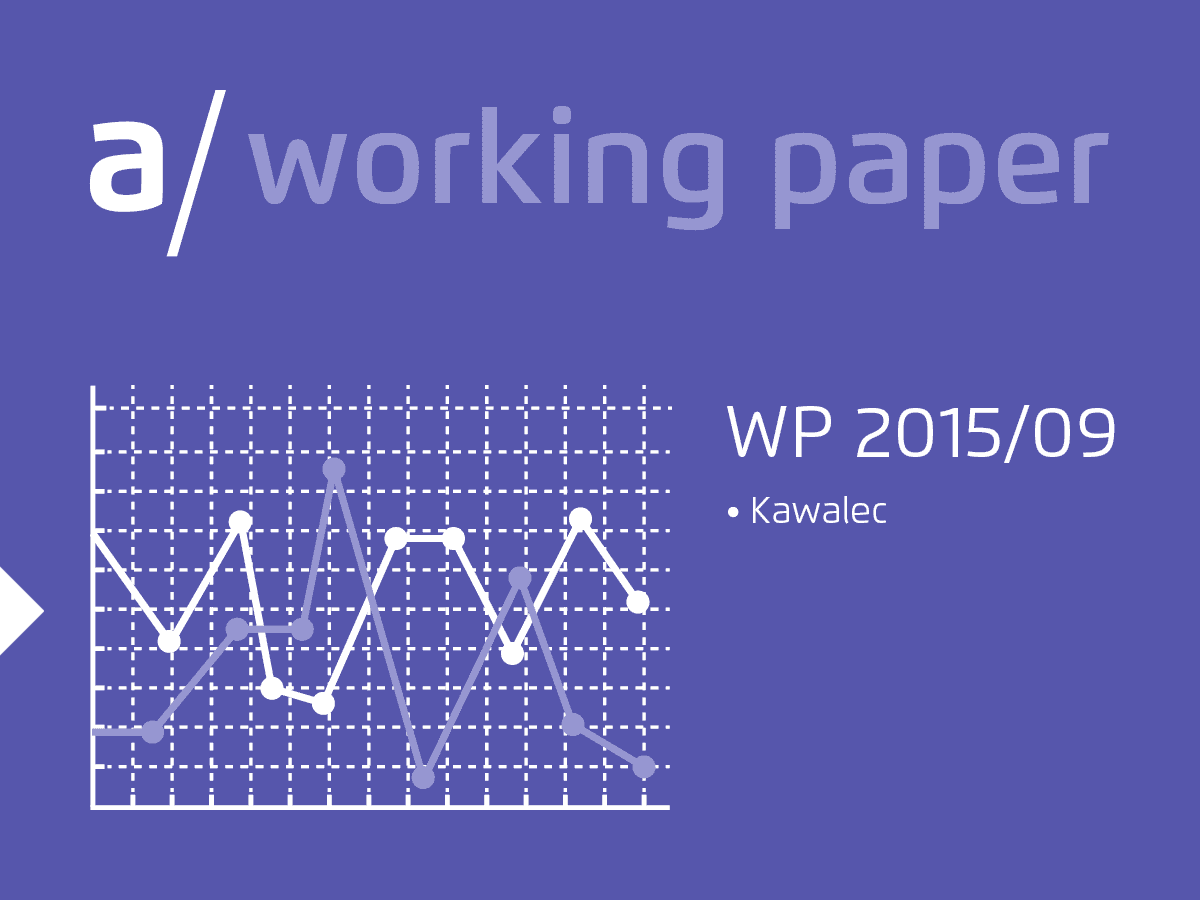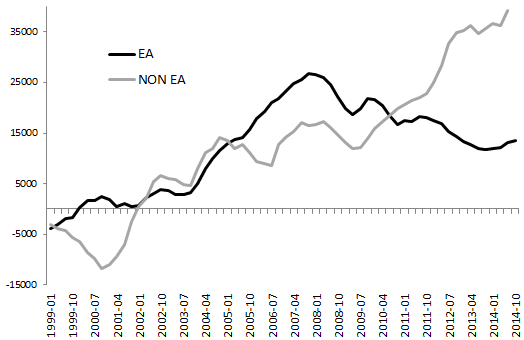In 2014, the Eurozone, with its huge current account surplus, was a major source of global economic imbalances. This phenomenon could last for a long time. Monetary expansion, which leads to currency depreciation, is the only macroeconomic tool available to the European Central Bank (ECB) to boost the competitiveness of struggling southern economies vis-à-vis countries outside the Eurozone. With the current economic imbalances within the Eurozone, the elimination the Eurozone’s current account surplus through appreciation of the euro would aggravate economic conditions in struggling member countries and could be politically explosive. Some observers hope that the Eurozone’s internal imbalances can be reduced by more expansionary policies in Germany or, in the future, by wealth transfers to be enabled when the fiscal and political union materializes. Both hopes are unjustified. A huge Eurozone current account surplus is likely to persist, and this will lead to tensions with the US and other trade partners. It could especially undermine the proposed Transatlantic Trade and Investment Partnership (TTIP). This contradicts a popular view that the European Union needs a single currency to operate successfully in the world economy among big players like the US, China and India. In fact, if the Eurozone countries had (or returned to) their national currencies, linked through adjustable currency bands as proposed in Kawalec and Pytlarczyk (2013 a, 2013 b), trade and current account deficits in countries in crisis could be eliminated through balancing imbalances among present Eurozone members, without the necessity to generate a huge surplus by the Eurozone as a whole. However, a single currency forces the Eurozone to try to desperately generate trade and current account surpluses, which is likely to spark currency wars with its main economic partners. This would impede international trade and diminish the benefits that Europe could achieve from international cooperation.
WP 2015/09: The permanent necessity to undervalue the euro endangers Europe’s trade relations

17 Agosto 2015
- Autori
- Stefan Kawalec Capital Strategy
- Keywords
- Eurozone, Current Account, Euro, Economic Imbalance, National Currencies, Internal Devaluation
- JEL Codes
- E56, E66, F32, F33, F36, F35

